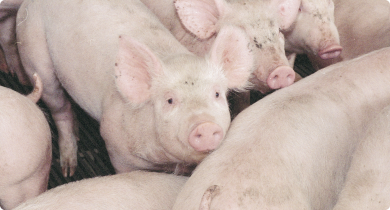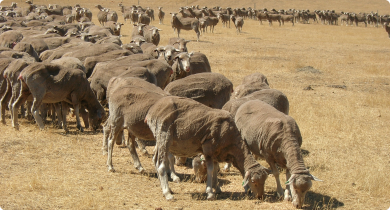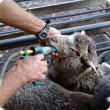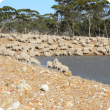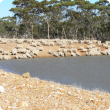Feeding & nutrition
What animals eat has a major impact on performance, profitability and quality of the end product. For intensive livestock (pigs, poultry and sheep and cattle in feedlots), cereals, legumes and protein meals make up the majority of the diet and are formulated to meet diet specifications. For extensive animals, quality of pastures and year-round supply become major issues.
The Department of Primary Industries and Regional Development supports the livestock industry by conducting a range of research activities, often in collaboration with industry and scientific groups. This research concentrates on determining nutrient requirements, evaluating feed ingredients and studying product quality (for example, eating quality of meat). The identification of alternative feed ingredients is an important activity, since the demand for more traditional feedstuffs will increase.
See Also
Articles
Filter by search
Filter by topic
- (-) Remove Biosecurity filter Biosecurity
- Livestock biosecurity (10) Apply Livestock biosecurity filter
- Biosecurity & quarantine (10) Apply Biosecurity & quarantine filter
- Pests, weeds & diseases (7) Apply Pests, weeds & diseases filter
- Livestock health & diseases (7) Apply Livestock health & diseases filter
- Diseases (7) Apply Diseases filter
- Livestock disease surveillance (7) Apply Livestock disease surveillance filter
- Stockfeed (4) Apply Stockfeed filter
- Livestock species (4) Apply Livestock species filter
- Sheep (3) Apply Sheep filter
- Water management (1) Apply Water management filter
- Water (1) Apply Water filter
- Climate, land & water (1) Apply Climate, land & water filter
- Beef cattle (1) Apply Beef cattle filter
- Pigs (1) Apply Pigs filter

